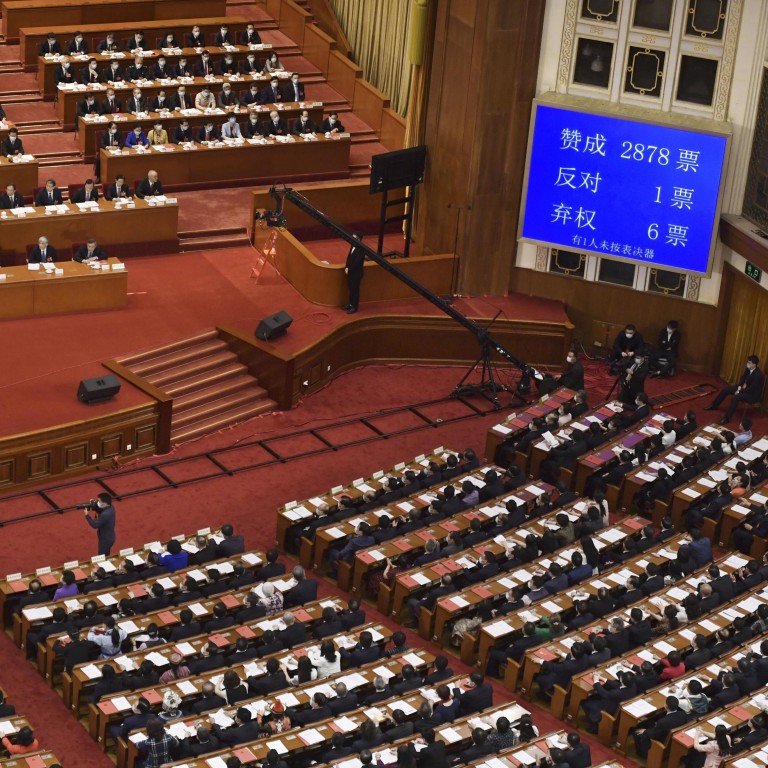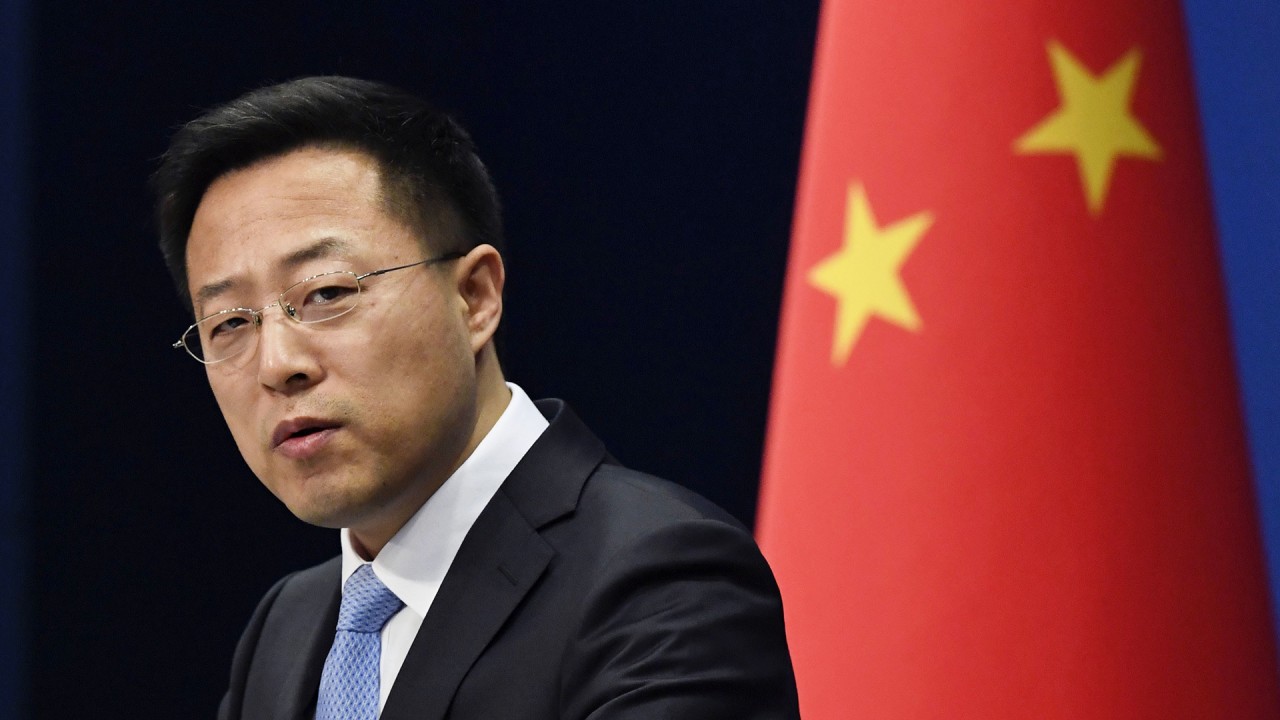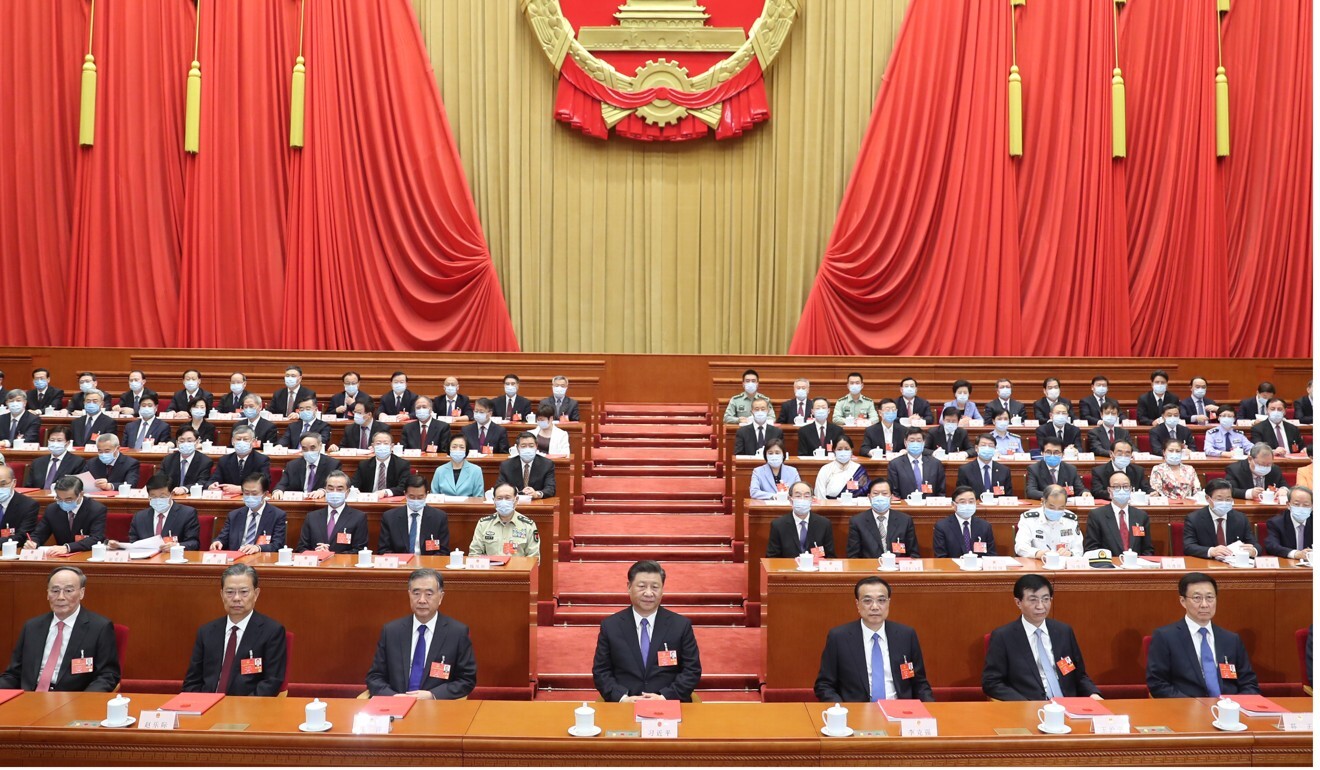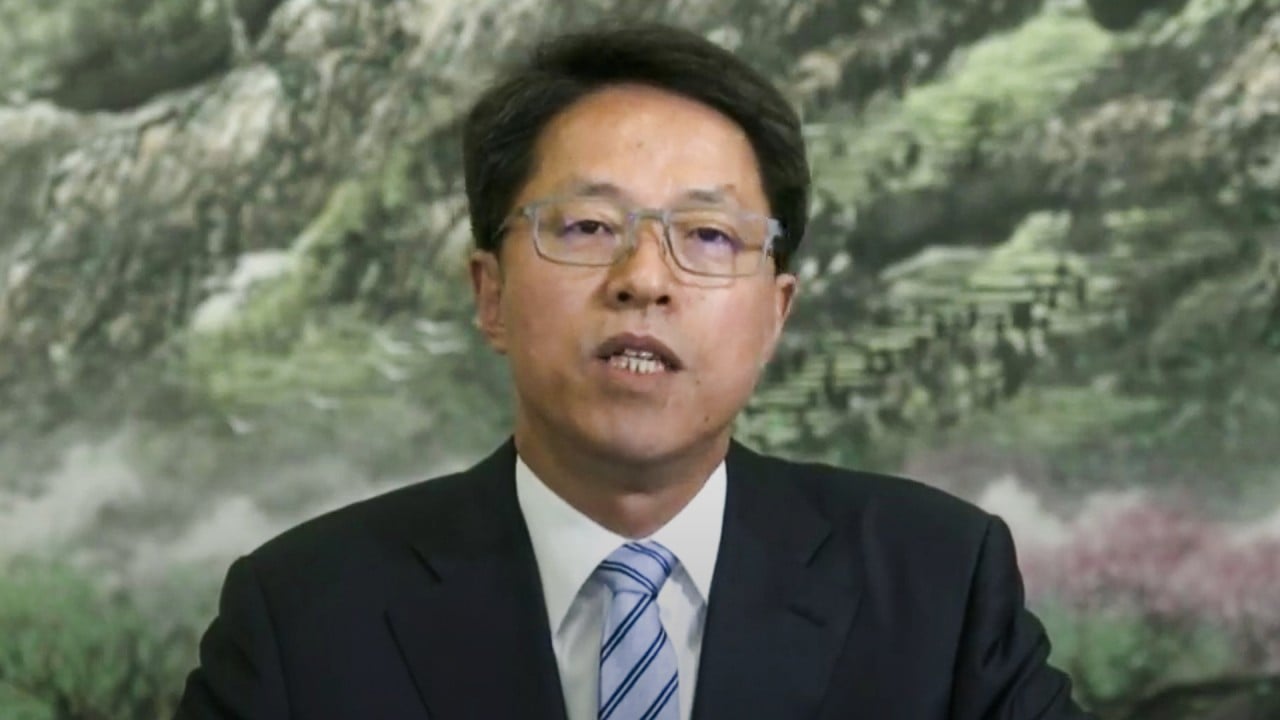
National security law: commission headed by Hong Kong leader and supervised by Beijing to oversee new legislation
- City’s leader will also have the right to appoint former or incumbent judges – meaning foreign ones will not be expressly ruled out as previously feared
- Details were outlined hours after China’s top legislative body concluded its three-day meeting on laws that included the new national security legislation
Key points:
- Hong Kong government should strengthen its efforts to monitor and manage schools and societies where national security is involved
- Hong Kong government will set up a commission to safeguard national security, which will be chaired by the chief executive and include an adviser appointed by Beijing
- Hong Kong leader to appoint designated judges to preside over cases
- Common law principles such as presumption of innocence and other human rights safeguards will be ensured
- A central government agency will be set up to analyse the national security situation in Hong Kong, and ‘monitor, supervise, coordinate and support’ the local government’s efforts, collect intelligence and handle relevant cases; mainland agents are required to follow Hong Kong laws
- Hong Kong will lead enforcement of the law except in a ‘very few’ cases where Beijing will retain jurisdiction
- The new law will override local legislation should conflicts arise
The city’s leader would have the right to appoint former or incumbent judges – meaning foreign ones would not be expressly ruled out as previously feared – but the directive was immediately seized upon by critics as a fundamental shift diminishing the city’s autonomy and rule of law.
While Hong Kong would be in charge of the enforcement of the law, Beijing retained the right to overrule the city on certain rare cases, according to details of the legislation spelled out in a press statement by state news agency Xinhua on Saturday evening.

01:06
China says detained Canadians should be held responsible for ‘the crime of spying’
In the release issued after China’s top legislative body, the National People’s Congress Standing Committee, concluded its three-day meeting deliberating on laws – including the new national security legislation – Xinhua made plain how Beijing had the final say over the law’s implementation.
“For Hong Kong laws that are not in line with this [impending national security] law, this law’s requirements will apply, and the right to interpret this law lies with the National People’s Congress Standing Committee,” it said.
Pompeo says US treatment of Hong Kong relies on how Beijing treats it
Carrie Lam issued a statement late on Saturday stating her government agreed with the need to set up the commission and new departments in the police force and the Department of Justice to handle national security cases.
“The draft law clearly stipulates that the national security law should follow important rule of law principles including conviction and punishment in accordance with the law, presumption of innocence, and protection of the rights of criminal suspects,” she said.
“These clear rules should relieve public doubts ... [The law] will not affect the capitalist system and the city’s legal system.”
The new national security law, which the NPC voted to adopt in May, would prohibit the crimes of secession, subversion, terrorism and collusion with foreign and external influences to threaten national security. And while the city would enforce the law, mainland agents could also operate in the city when needed.
The law would need to be passed by the Standing Committee before it would be promulgated into the Basic Law, the city’s mini-constitution.

The Xinhua report did not spell out the penalties that would be meted out on the four crimes, but Tam Yiu-chung, Hong Kong’s sole delegate to the Standing Committee, revealed it could be up to 10 years of imprisonment. He said that members discussed during the three-day meeting the occasions when Beijing might exercise jurisdiction over cases, which the Xinhua report had said would be in special circumstances.
“When there is war … or when Hong Kong is in a state of anarchy, will the central government use its jurisdiction,” Tam quoted members as saying.
Such exceptions when Beijing could clearly intervene are also spelled out under Article 18 of the Basic Law.
Tam also said there was deliberation on the definition of the four crimes covered by the legislation. “In terms of punishment, it is around three years [in jail] on the lighter end, the rest is from five to 10 years,” he said.
Addition of ‘collusion’ to Hong Kong national security law raises fresh concerns
Opposition lawmakers denounced Beijing’s plan to appoint an adviser for the city’s leader and her own right to appoint judges, warning that it undermined Hong Kong’s autonomy and judicial independence.
But pro-Beijing politicians countered that these measures showed the central government had taken into account the differences between the legal and political systems in Hong Kong and mainland China. The Xinhua report took pains to underscore the rights and freedoms Hong Kong enjoyed, they said, adding that there was no attempt to ban foreign judges from hearing national security cases.
What we know and don’t know about Hong Kong’s national security law
Since the central government revealed its plan last month, critics have questioned whether the new law would infringe on Hong Kong people’s freedoms, and erode the city’s core values.
But Xinhua’s press release said that the legislation would make it clear that the Hong Kong government would need to respect and protect human rights as it safeguarded national security.
“It must protect the freedoms of expression, the press, publication, association, assembly … that Hong Kong people enjoy under the International Covenant on Civil and Political Rights and the International Covenant on Economic, Social and Cultural Rights,” it said.
“Rule of law principles would be maintained when preventing, stopping and punishing crimes that endanger national security,” Xinhua said, adding that they included rights relating to the criminal process, including presumption of innocence until proven guilty, and the right of suspects and defendants to a defence.
The draft legislation would state that both the central and local governments would establish new institutions in Hong Kong.

A mainland agency, named the Office of the National Security Commissioner of the People’s Republic of China in the Hong Kong Special Administrative Region, would be formed.
Its responsibilities would include analysing the national security situation in Hong Kong and offering advice for critical strategies and policies. It would “monitor, supervise, coordinate and support” the local administration in defending national security, collect and analyse intelligence concerning national security and handle relevant cases in accordance with the law, according to Xinhua.
The new mainland agency and “relevant state departments” would also exert jurisdiction over select cases that threatened national security – which Xinhua said was a reflection of the central government’s full jurisdiction over Hong Kong.
The Hong Kong government, meanwhile, would need to establish “a commission to safeguard national security”. It would be chaired by the chief executive, and consist of at least 10 other members – including the city’s ministers for finance, justice, administration and security – as well as the heads of police and customs.
While the chief executive will be responsible for appointing a secretary general to the commission, a national security adviser will be appointed by the central government to sit on the body.
The Department of Justice would need to set up a specialised section on prosecutions related to national security crimes, as police would also set up a dedicated unit, Xinhua added.

03:18
Hong Kong’s national security law is like ‘anti-virus software’, top Beijing official says
The draft legislation stated that the chief executive should, from current or former magistrates and judges, designate several to handle national security cases.
Hong Kong Bar Association chairman Philip Dykes described such a rule as “unusual”.
Dykes, a human rights lawyer, was concerned about the “complicated role” of the city’s leader in relevant lawsuits, as she was directly accountable to the central government.
“It is very odd for a person [who has] a stake in the prosecution to select the judges,” he told the Post.
But Basic Law Committee member Albert Chen Hung-yee, a law professor at the University of Hong Kong, dismissed the concerns over the chief executive’s right to pick judges, saying everyone on the bench in Hong Kong should uphold the principle of judicial independence anyway.
Earlier on Saturday, a source indicated that a brief consultation period would follow after the Standing Committee meeting and changes would still be possible.
Collusion may broaden Hong Kong national security law coverage: legal expert
Ip Kwok-him, an executive councillor and NPC delegate, expected that a special meeting would be held in late June or early July to further discuss and pass the law.
On Saturday evening, legal scholars, while noting the protections being pledged over the new law, singled out the impartiality of judges appointed by the chief executive and the actual areas in which the Standing Committee could weigh in after the law was passed as their biggest concerns.
Professor Simon Young Ngai-man, associate dean of HKU’s law faculty, said: “The most worrying part is that the power of interpretation will lie with the Standing Committee.
“It is unclear whether Hong Kong courts will be allowed to interpret this law or whether it will need to seek an interpretation from the Standing Committee when there is an ambiguity.”



